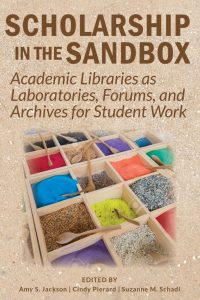I am very happy to announce this year’s cohort of Digital Humanities Summer Scholars! This year’s application process was quite busy and competitive: 29 interviews, and 8 Summer Scholars chosen out of 24 applicants. The range of research ideas is truly exciting!
Here are the Summer Scholars for 2019:
Milena Berestko, Class of 2022, Psychology and Theatre major, intends to research the impact of the Romani people on Polish arts, legislature, and traditions, which she plans to present as an interactive map to show the travel routes of the Romani in Poland, among other data points.
Phillip Harding, Class of 2020, Electrical and Computer Engineering major, will analyze the patterns and trends of people emigrating from Jamaica to the U.S., and compare his findings to popularly held beliefs and notions characterizing immigrants.
Joseph Illuzzi, Class of 2021, Economics and Policy Studies major/Chinese minor, will examine factors contributing to labor inequities in the eSports industry, and illustrate the historical progression of labor conditions and showcase the highly visual nature of games like Counter Strike: Global-Offensive and League of Legends through digital tools like TimelineJS.
Ren Makino, Class of 2020, International Affairs and Asian Studies major, is interested in using digital tools to map geographical locations of anti-government movements (such as those arising from labor disputes) or anti-imperialist rallies in periods in Japan before, during, and after WWII.
Victoria Puglia, Class of 2021, International Affairs major, will expand on her experience during an independent study in Kapchorwa, Uganda, and further research the gap that seems to exist between political policy and intervention/practice in reality regarding female genital mutilation (FGM), and map the different initiatives being taken by community-oriented organizations like KACSOA and REACH, as well as the police, to visualize where these gaps exist.
Tafita Rakotozandry, Class of 2022, Electrical and Computer Engineering major, is focused on the issue of electricity access in Madagascar, and will investigate how energy poverty impacts the education and future of rural children in that country.
Bec Stargel, Class of 2020, Psychology and Anthropology & Sociology major, will explore how language relating to transgender identities has changed over the past twenty-plus years, and plans to create a map/timeline of the trends in which these words have gained and lost popularity, tracking these changes onto major social events and public discourse.
Aidy Ung, Class of 2021, Civil Engineering major, will look at the ancient hydraulic system of the city of Angkor in 9th to the 12th century Khmer Empire, Cambodia, and learn how the engineers managed the complex water networks to support agricultural activities, in hopes of better understanding how the system remains functional, but is different from modern water management systems.
Angela Shi (Yu Shi), Class of 2021, will act as the program’s first DH Teaching Fellow this year. A 2018 Summer Scholar, she will assist me in class and workshop preparation, develop and maintain the DHSS website, and be available to the Summer Scholars for consultation about the progression of their digital research projects.
The Summer Scholars will be officially celebrated at Skillman Library in a few weeks with a Welcome Dinner at the Gendebein Room.
The program runs from May 21 – June 28 this year, culminating in the Digital Scholarship Student Symposium, which will be held here on Lafayette’s campus on June 28. The Summer Scholars will be presenting their final digital research projects at that event, so please come and see them if you are on campus the last week of June.
If you have questions, or you are at all interested in being involved with the program, please contact me. Digital Humanities is a collaborative field, and I really enjoy working with my colleagues in teaching the Summer Scholars about many different aspects of the research journey. I look forward to hearing from you!
Sincerely,
Angela


